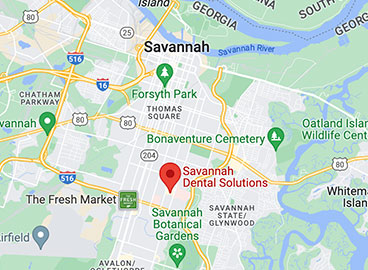
Do you have pain or limited mobility in your jaw? These are common symptoms of TMJ disorder. TMJ stands for the Temporomandibular Joint, which is the place where your lower jaw attaches to your skull. This joint can become inflamed, which causes pain and a tightness that can prevent you from being able to open your mouth as far as you should.
If you have TMJ issues, make an appointment with your dentist. Your dentist can perform an evaluation and determine the best way to treat your TMJ. What will a TMJ evaluation look like? Here’s what to expect.
Prepare to Answer Some Questions
One of the best ways for your dentist to determine the cause of your TMJ disorder is to ask you some questions. Before you go to your evaluation, consider these questions:
- When did your symptoms start?
- What has been your history with TMJ pain or discomfort?
- Has your stress level increased recently?
- Do you or a loved one notice teeth grinding at night?
- What is the frequency of headaches, neck aches, toothaches or other pain symptoms?
- Are you currently on any medications or supplements?
These questions help to give the dentist some background information. Teeth grinding and clenching are some of the most common causes of TMJ disorder. Stress is often the cause of the teeth grinding and clenching, which can happen at night or during the day.
Follow Up Questions
Additional questions can give your dentist more information about the severity of your TMJ disorder. Your dentist will probably also ask you:
- Is your pain constant or sporadic?
- Do you feel a clicking or popping in your jaw? Is it painful?
- Is there any activity that seems to coincide with the pain?
- Can you open your mouth normally?
- Do you have sleep apnea?
If you have constant pain, your condition would be considered severe due to your level of discomfort. When you have a clicking or popping sound in your jaw when you chew or yawn, it is usually due to the tendons and ligaments in your temporomandibular joint sliding over the bone. It can also result from a lack of cartilage in your jaw so the bones are grinding together.
The Physical Examination
The dentist will need to physically examine your jaw, which will entail listening and feeling your jaw while you open and close your mouth. This will allow your dentist to determine the extent of the issues in your jaw and what needs to be done to treat it. X-Rays may be helpful to give your dentist a look at what’s going on in the joint and to identify any issues with the teeth.
Treatment Options
After your TMJ evaluation, your dentist will recommend treatment options. TMJ treatment may include any combination of the following:
- Apply ice. If your condition is not severe, applying ice regularly for a few days can help to reduce swelling and inflammation and relieve the pain and tightness.
- Eat soft foods. Eating soft foods for a while can reduce the pressure on your jaw to relieve pain and inflammation, giving your jaw a chance to heal.
- Make an effort to relax your jaw. Be mindful of the times you clench or grind your teeth and attempt to relax it.
- Medication. Pain relievers and anti-inflammatory medications can help relieve TMJ symptoms and allow the joint to heal.
- Bite splint/orthotic. Oral appliances and mouth guards can prevent the effects of teeth grinding and clenching by putting a shock absorbing barrier between your teeth.
- Physical therapy. Physical therapy can help rehabilitate the jaw to reduce pain and restore range of motion.
- Surgery. The last resort for severe cases that don’t clear up with any other option, is surgery. Surgery on the joint can reconstruct it from the inside when necessary.
Savannah Dental Solutions Can Treat TMJ
If you’re experiencing pain or limited mobility in the jaw, contact Savannah Dental Solutions. We will schedule you for a TMJ evaluation and recommend the best treatment options for your case.
Call (912) 354-1366 or contact us to schedule a TMJ evaluation. We look forward to providing you with relief of your jaw pain.


